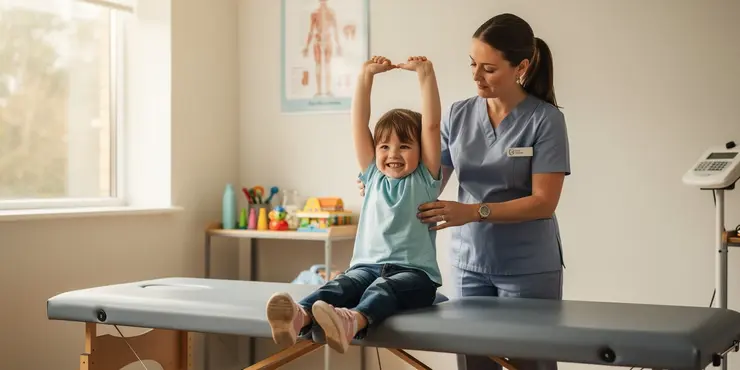
Find Help
More Items From Ergsy search
-
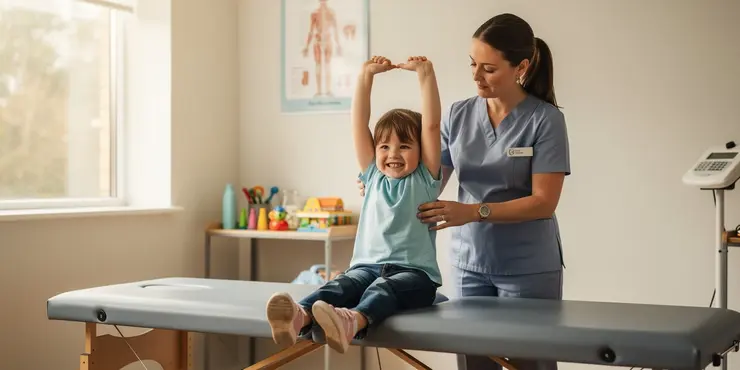
Can children benefit from chiropractic care?
Relevance: 100%
-
Chiropractic Care on the NHS
Relevance: 86%
-
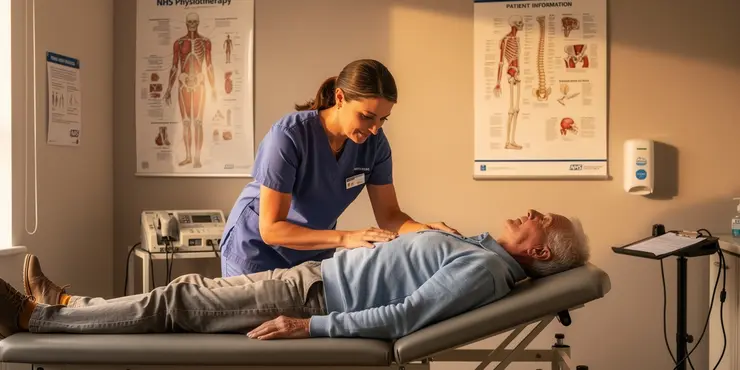
Can chiropractic care help with arthritis?
Relevance: 80%
-
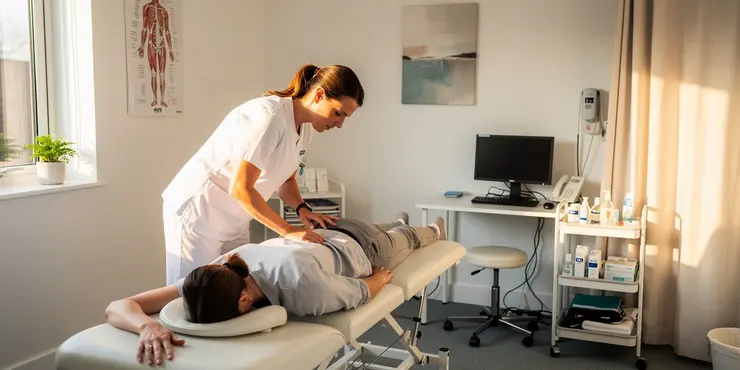
What is a chiropractic adjustment?
Relevance: 67%
-
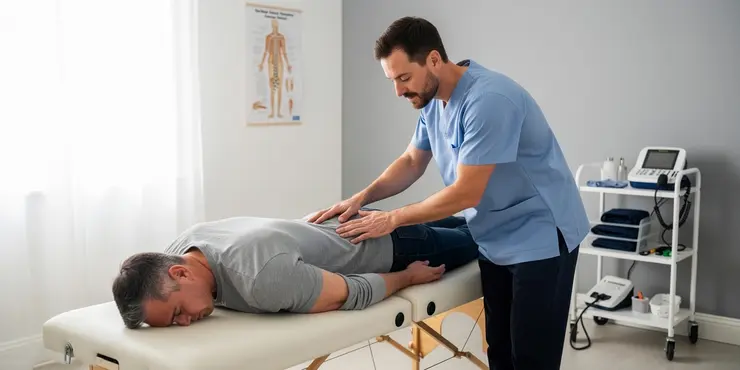
Are chiropractic treatments painful?
Relevance: 66%
-
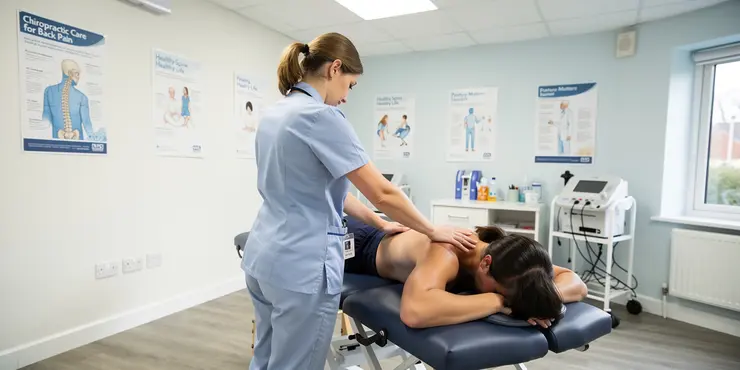
Are chiropractic treatments safe?
Relevance: 66%
-
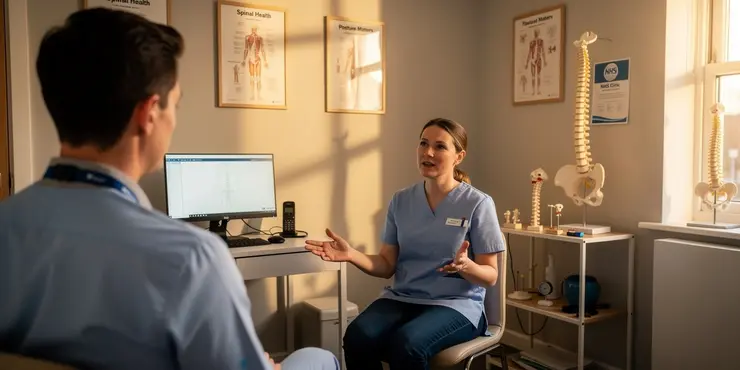
Is chiropractic care covered by insurance?
Relevance: 60%
-
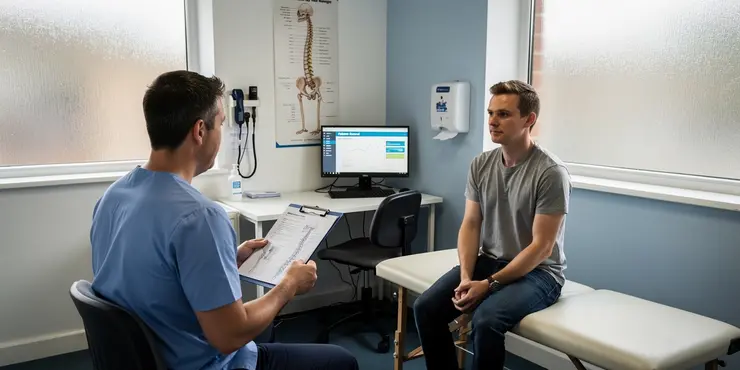
How long does a chiropractic session usually take?
Relevance: 53%
-
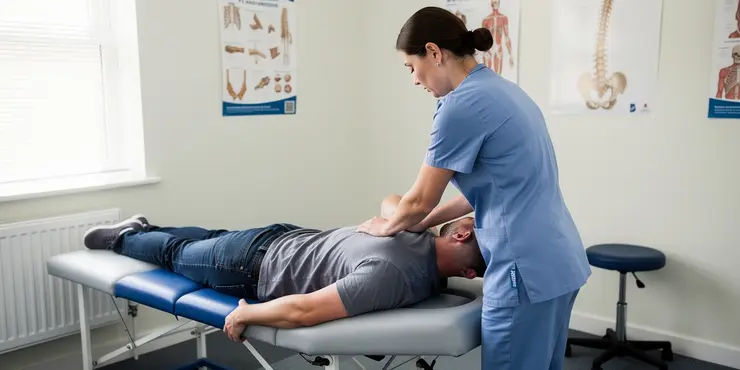
What is the popping sound during a chiropractic adjustment?
Relevance: 50%
-
Can children get free NHS dental care?
Relevance: 46%
-
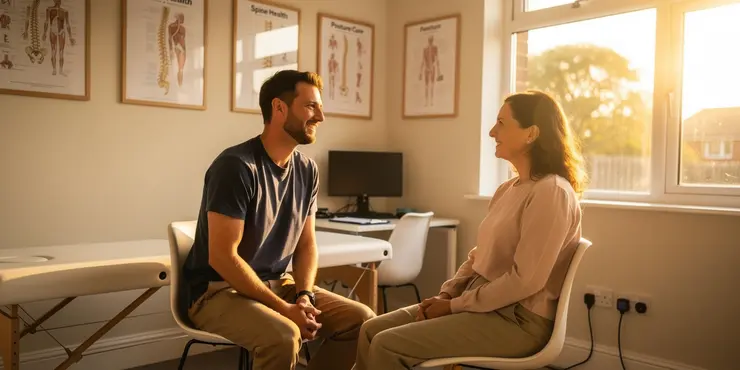
Do I need a referral to see a chiropractor?
Relevance: 39%
-

What does a Chiropractor do?
Relevance: 37%
-
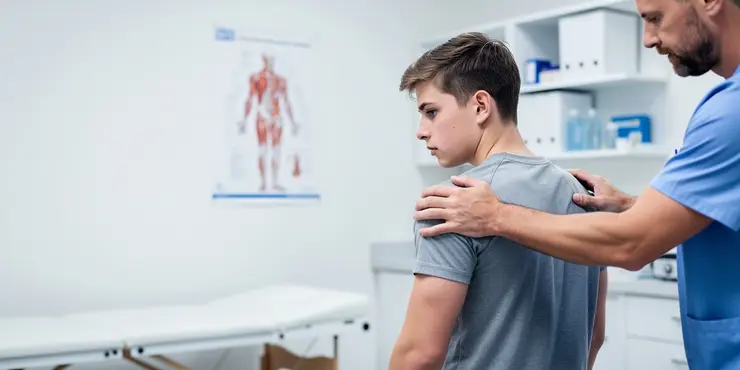
Can chiropractors help with sports injuries?
Relevance: 37%
-
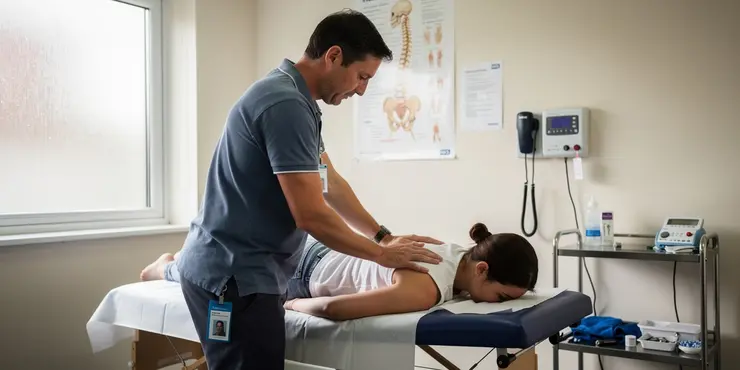
How do chiropractors treat back pain?
Relevance: 36%
-
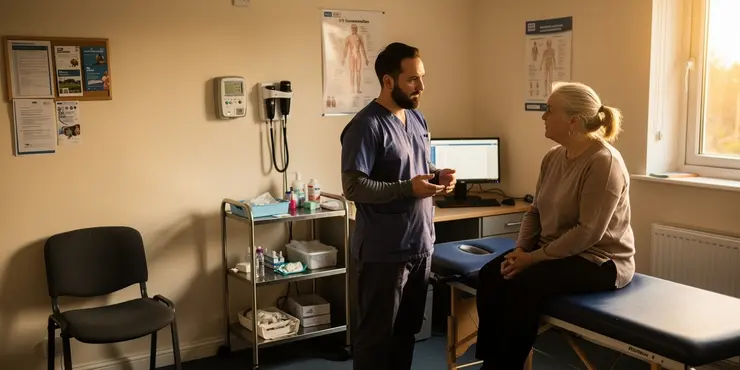
What should I expect during my first chiropractic visit?
Relevance: 36%
-

Do chiropractors only treat the spine?
Relevance: 36%
-
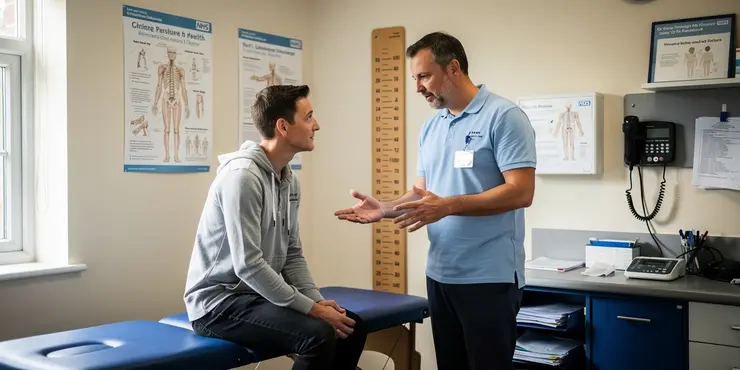
How often should I see a chiropractor?
Relevance: 35%
-
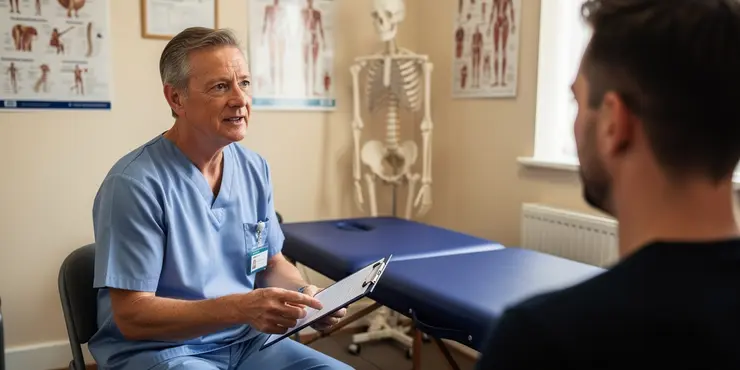
Do chiropractors prescribe medications?
Relevance: 34%
-
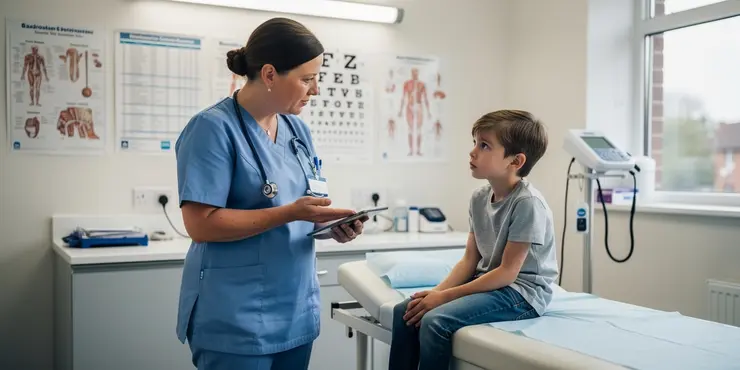
Is Baxdrostat suitable for children?
Relevance: 34%
-
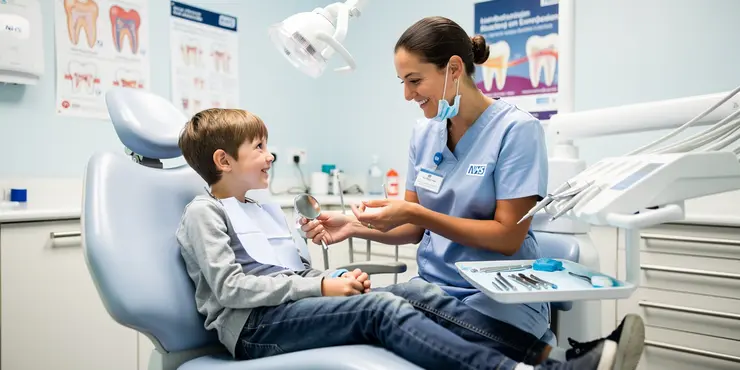
Can children get NHS dentist appointments?
Relevance: 33%
-
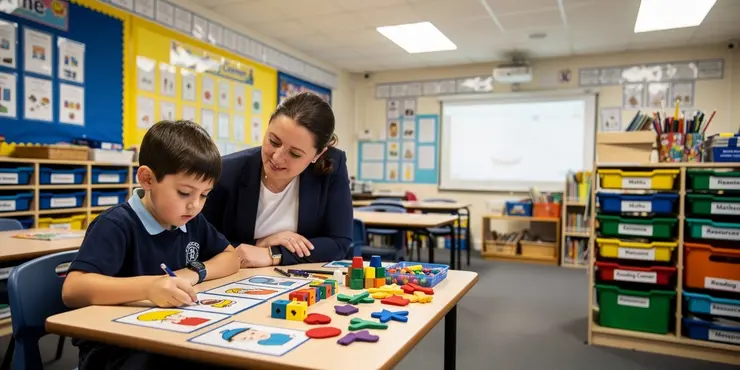
What are SEND children?
Relevance: 33%
-
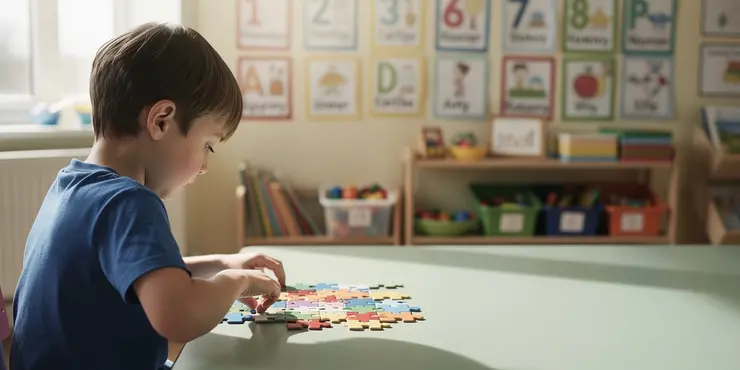
Who are SEND children?
Relevance: 32%
-
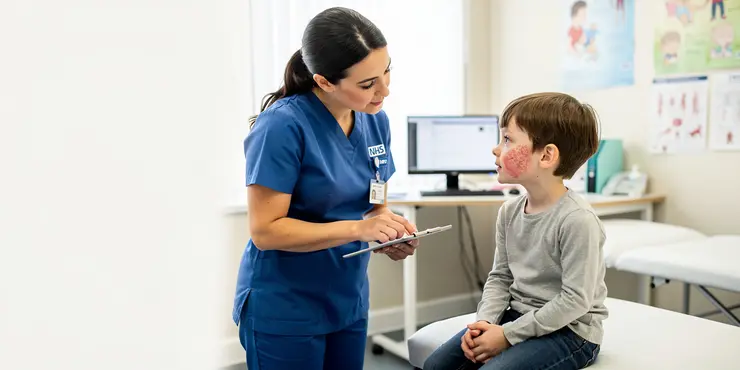
Lupus in children | NHS
Relevance: 32%
-
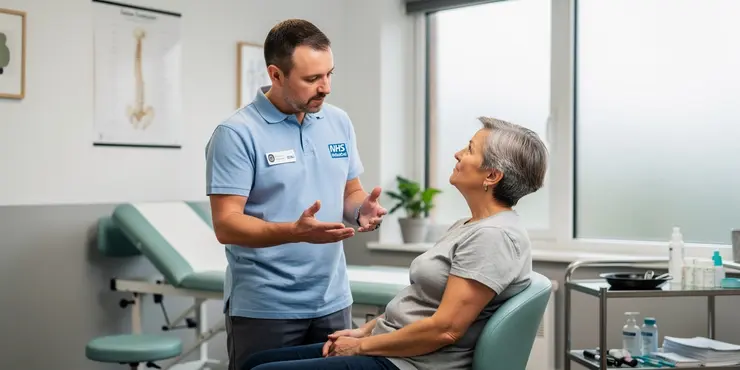
What qualifications does a chiropractor need?
Relevance: 32%
-
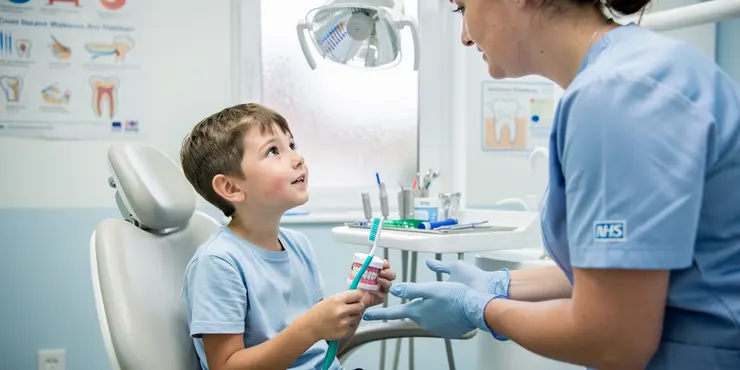
Is tooth decay common in children?
Relevance: 32%
-
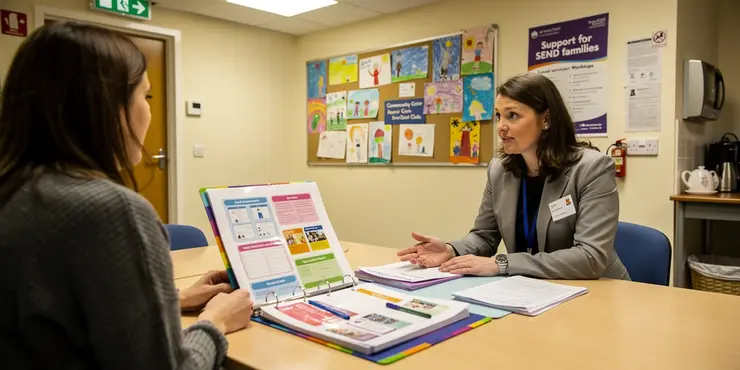
What support is available outside of school for SEND children?
Relevance: 31%
-
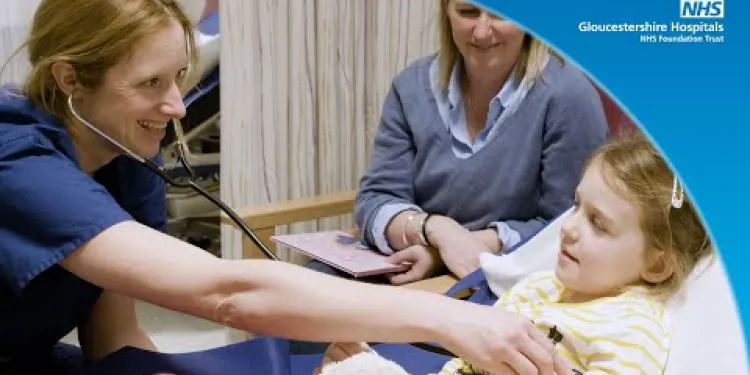
Having an operation at the Children’s Centre
Relevance: 31%
-
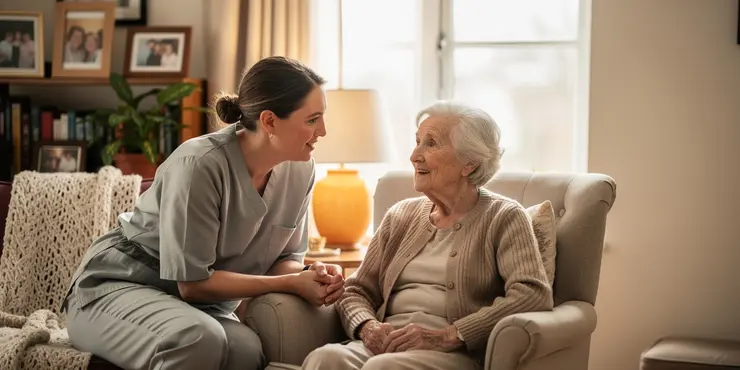
Dementia Care at Colten Care
Relevance: 31%
-
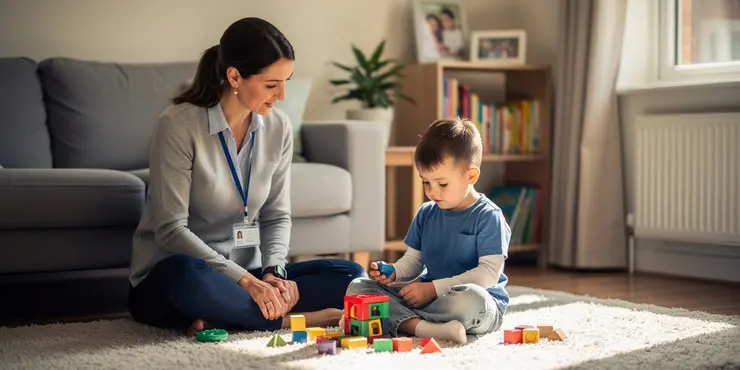
Child Care Proceedings | Family Law
Relevance: 31%
-

Can children with cancer receive Paillon treatment?
Relevance: 30%
-

Do care homes provide medical care?
Relevance: 30%
-
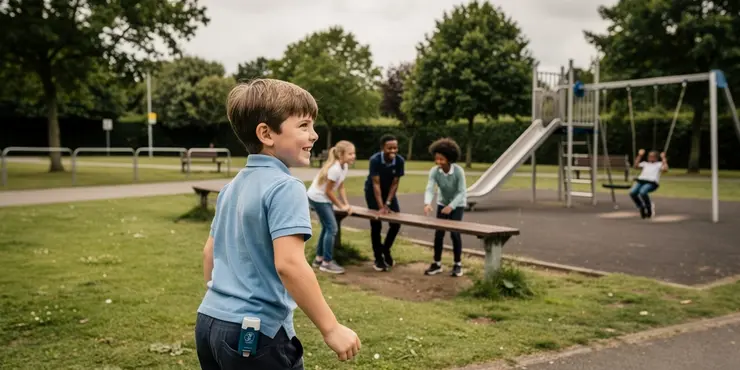
Can children outgrow asthma?
Relevance: 29%
-
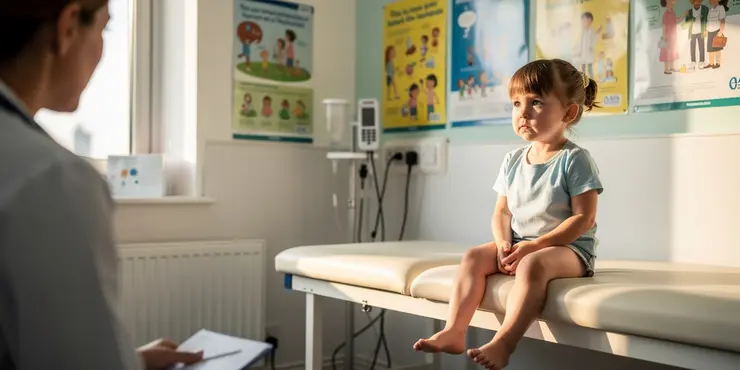
Can children use Mounjaro?
Relevance: 29%
-
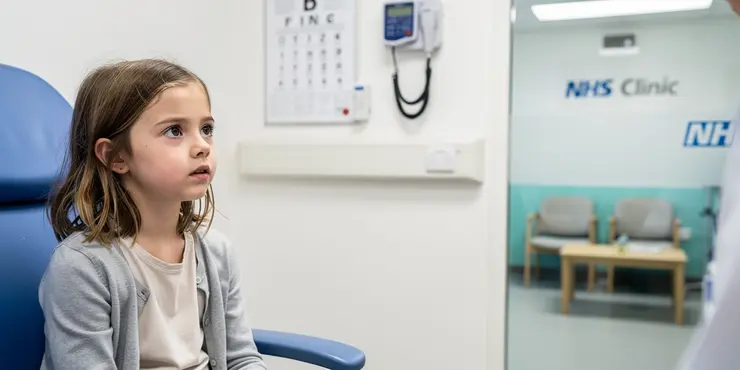
What is lupus in children?
Relevance: 29%
-
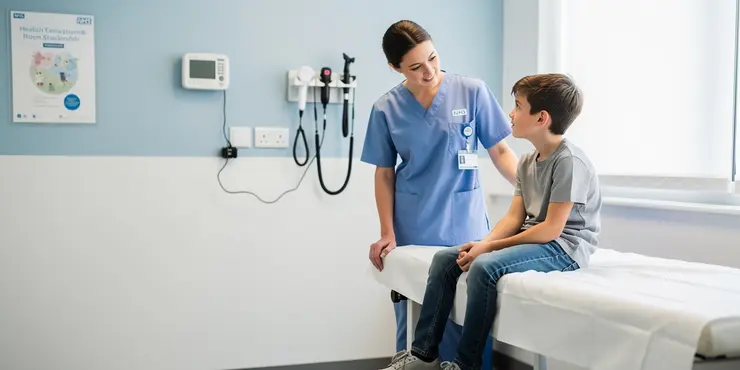
Can Wegovy be used by children?
Relevance: 29%
-
Can children develop chronic fatigue syndrome?
Relevance: 29%
-

Children's Vaccination Schedule
Relevance: 29%
-
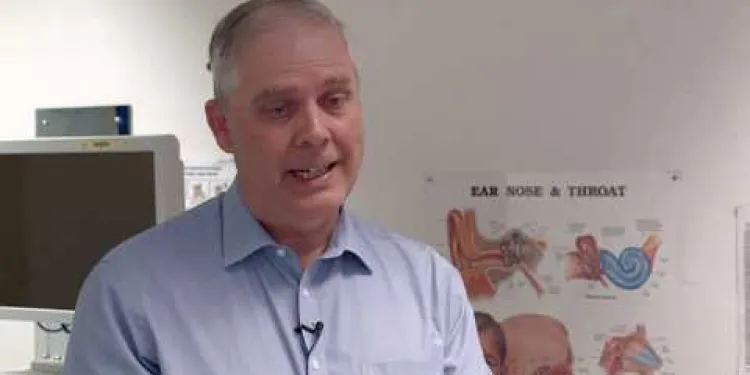
Evidence-Based Interventions: grommets for glue ear in children
Relevance: 29%
-
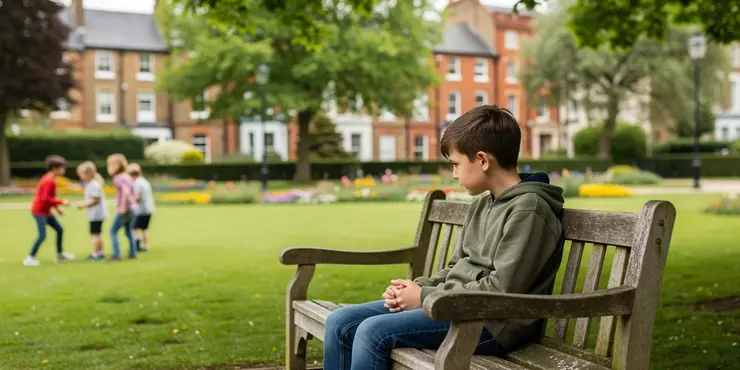
Navigating Mental Health Services for Children and Adolescents
Relevance: 29%
-
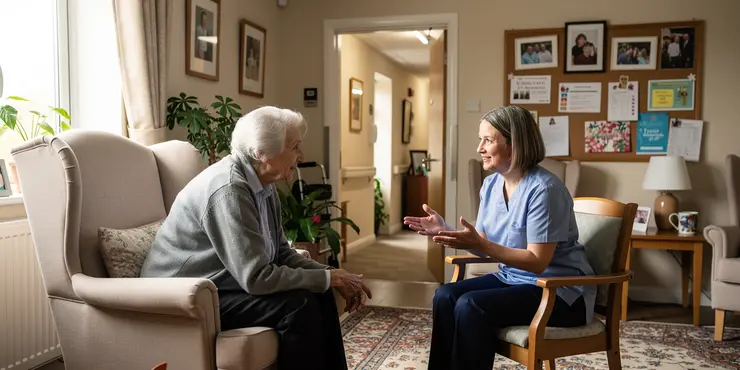
How is the quality of care regulated in care homes?
Relevance: 28%
Introduction to Chiropractic Care for Children
Chiropractic care is a form of alternative medicine that primarily focuses on the diagnosis and treatment of mechanical disorders of the musculoskeletal system, particularly the spine. In recent years, there has been an increasing interest in the potential benefits of chiropractic care for children. Parents in the UK are considering chiropractic treatment to address various health issues in their children and to promote overall well-being.
Potential Benefits of Chiropractic Care for Children
Chiropractors often claim that their interventions can benefit children in several ways. One of the main advantages is the potential for improved spinal health. Proper spinal alignment can support good posture, which might be particularly important as children grow and develop. Proper posture can also contribute to balance and coordination, which are vital during a child's early developmental years.
Additionally, chiropractic care is often suggested as a method to alleviate musculoskeletal-related discomforts that children might experience, whether from minor injuries or habitual bad posture. These non-invasive treatments may offer a complementary approach to enhancing a child's health and comfort.
Treatment of Specific Conditions
Some practitioners assert that chiropractic care can help with specific pediatric conditions such as colic, ear infections, asthma, and even behavioral issues like attention deficit hyperactivity disorder (ADHD). However, it is important to note that evidence supporting chiropractic care for these specific conditions is largely anecdotal and more extensive scientific studies are needed to confirm these benefits.
For instance, some parents report improvements in colic symptoms after chiropractic adjustments. The theory is that by improving nervous system function, chiropractic care could potentially reduce nerve irritability and improve digestive function, therefore alleviating colic.
Considerations and Safety Concerns
When considering chiropractic care for children, safety is a paramount concern. Chiropractic adjustments for children are typically gentler than those for adults. Practitioners use modified techniques tailored to a child's age, size, and condition. However, parents should thoroughly research and choose qualified and experienced pediatric chiropractors to ensure the safety and efficacy of the treatment.
It is crucial for parents to consult with their child's healthcare provider before beginning chiropractic care, particularly if there are underlying health conditions. The integration of chiropractic care with standard medical practices should be carefully managed to ensure the child's safety and well-being.
Conclusion
While chiropractic care may offer potential benefits for children, especially concerning musculoskeletal health and some specific conditions, it is essential for parents in the UK to approach this form of treatment with careful consideration. Thoroughly vetting practitioners, consulting with healthcare providers, and ensuring treatments are done safely are key steps in making informed decisions about chiropractic care for children.
Introduction to Chiropractic Care for Children
Chiropractic care is a type of treatment that helps with bones and muscles, especially the spine. Lately, many parents are asking if chiropractic care can help their children feel better and stay healthy.
Potential Benefits of Chiropractic Care for Children
Chiropractors say their treatments can help kids in different ways. One big benefit is helping the spine stay healthy. A healthy spine can lead to good posture. Good posture helps children stand and move well, which is important as they grow.
Chiropractic care can also help children feel better if they have aches and pains. This might happen from small injuries or sitting in a bad position. The treatments are gentle and can help make children feel more comfortable.
Treatment of Specific Conditions
Some people say that chiropractic care can help with certain problems like colic, ear infections, asthma, and even focus and behavior problems like ADHD. But, we need more research to know if this really works.
For example, some parents say their baby cries less from colic after seeing a chiropractor. The idea is that if the spine and nerves work better, it can help with digestion and reduce stomach pain.
Considerations and Safety Concerns
Safety is very important when thinking about chiropractic care for children. The treatments for children are softer than for adults. It's important for parents to find a chiropractor who knows how to work with kids.
Parents should talk to their child’s doctor before starting chiropractic care, especially if the child has health problems. It's important to use chiropractic care safely and along with regular medical care.
Conclusion
Chiropractic care might help children with their bones and muscle health. Parents should be careful and learn more about chiropractors before starting treatment. It is important to talk with doctors, find good chiropractors, and make sure the treatments are safe for children.
Frequently Asked Questions
What age can children begin receiving chiropractic care?
Children can begin receiving chiropractic care from infancy. However, it is important to consult a pediatrician and a qualified chiropractor to assess individual needs.
Is chiropractic care safe for children?
Yes, chiropractic care is generally considered safe for children when performed by a qualified practitioner who uses gentle, age-appropriate techniques.
What are the potential benefits of chiropractic care for children?
Chiropractic care for children may help improve sleep, reduce colic symptoms, support healthy immune function, and address posture issues.
Can chiropractic care help with children's ear infections?
Some parents report improvements in ear infection symptoms with chiropractic care, but more research is needed to understand its effectiveness.
How does chiropractic care differ for children compared to adults?
Chiropractic care for children typically involves very gentle techniques and adjustments, considering the developmental stage and size of the child's spine.
Can chiropractic care aid in children’s posture correction?
Yes, chiropractic care can help address posture issues by aligning the spine and promoting healthy growth and development.
Is there scientific evidence supporting chiropractic care for children?
While anecdotal evidence supports benefits, more rigorous scientific studies are needed to conclusively prove the efficacy of chiropractic care for children.
How often should a child receive chiropractic care?
The frequency of visits depends on the child's condition, needs, and the chiropractor's assessment, with some children benefiting from regular check-ups.
What conditions in children can chiropractic care potentially help with?
Chiropractic care for children may help with conditions like colic, discomfort from teething, growing pains, and spinal misalignments.
Should I consult a pediatrician before seeking chiropractic care for my child?
Yes, it's advisable to discuss chiropractic care with your child's pediatrician to ensure it complements their healthcare plan.
Are there any risks associated with pediatric chiropractic care?
When performed by a trained professional, risks are minimal, but parents should ensure the chiropractor is experienced with pediatric cases.
What should I expect during my child's first chiropractic visit?
During the first visit, the chiropractor will conduct a thorough assessment, discuss your child's health history, and create a personalized care plan.
Can chiropractic care improve a child's sleep patterns?
Some parents report improved sleep patterns in their children after chiropractic adjustments, although individual results may vary.
What qualifications should a pediatric chiropractor have?
Pediatric chiropractors should be licensed and ideally have additional training or certification in pediatric chiropractic care.
Can chiropractic care help with ADHD symptoms in children?
While some parents report improvements, there is limited scientific evidence to support chiropractic care as a treatment for ADHD.
Is chiropractic care painful for children?
Chiropractic adjustments for children are designed to be gentle and should not be painful; children typically tolerate the procedures well.
How can I find a reputable chiropractor for my child?
Look for licensed practitioners with experience in pediatrics, preferably recommended by healthcare professionals or through reputable chiropractic associations.
Can chiropractic adjustments aid in a child’s nervous system development?
Chiropractic care aims to support the nervous system by ensuring proper spinal alignment, which may contribute to healthy development.
What should I do if my child is scared of visiting a chiropractor?
Talk to your child beforehand, explain the process simply, and choose a chiropractor experienced with children to create a welcoming environment.
Can chiropractic care assist in sports injury recovery for children?
Yes, chiropractic care can help support recovery from sports injuries by promoting healing and improving range of motion.
When can kids start seeing a chiropractor?
Kids can see a chiropractor when they are babies.
If you have questions, talk to a doctor or chiropractor. They can help you.
Kids can see a chiropractor from when they are babies. But it is important to talk to a children's doctor and a good chiropractor to see what each child needs.
Is it safe for kids to see a chiropractor?
Yes, it can be safe. A chiropractor helps with bones, muscles, and joints. Make sure to see a chiropractor who knows how to work with kids.
If you have more questions, talk to a doctor. They can help with more information.
Yes, going to a chiropractor is usually safe for children. The chiropractor should be well-trained and use gentle methods that are right for children.
How can visiting a chiropractor help children?
Chiropractors are people who help with bones and muscles. Here are some ways they might help children:
- They can help reduce pain.
- They can help children move better.
- They can help keep children's bodies healthy.
It's a good idea to talk to a doctor before going to a chiropractor.
Using pictures or videos can help understand what chiropractors do better.
Seeing a chiropractor might help kids sleep better, cry less, have a stronger immune system, and stand up straight.
Can chiropractors help when kids have ear infections?
Ear infections can make kids feel unwell. Chiropractors are people who can help by gently moving and stretching the body. This can sometimes help kids feel better.
If you think a chiropractor could help your child, talk to your child’s doctor first. You can also use pictures or videos to help your child understand what will happen. These can make the visit less scary.
Some parents say that their kids feel better from ear infections after visiting a chiropractor. But scientists need to study more to know if it really helps.
What is different about chiropractic care for kids and adults?
Chiropractors help children by using soft and gentle touches on their backs. They know kids' backs are still growing, so they are very careful.
Can seeing a chiropractor help kids stand or sit up straighter?
Yes, going to a chiropractor can help with posture problems. They help by making sure your back is straight and healthy. This helps you grow and feel better.
Is there proof that chiropractic care helps kids?
Some people say that chiropractic care helps kids feel better. But we need more science studies to be sure it really works.
How often should a child see a chiropractor?
Chiropractors help with back and joint pains. They also help make sure the body is balanced.
If your child sees a chiropractor, ask them how often your child should visit. It can be different for each child.
More visits might be needed if a child has pain or an injury. Fewer visits might be needed once they feel better.
It's a good idea to talk to a doctor to check if seeing a chiropractor is right for your child.
Using pictures or videos can help explain what a chiropractor does. Ask questions if you need help understanding.
How often you visit the chiropractor depends on how the child feels, what they need, and what the chiropractor thinks is best. Some children get help by going for check-ups often.
How can seeing a chiropractor help children feel better?
Going to a chiropractor might help kids with some problems, like:
- Back pain
- Neck pain
- Headaches
Chiropractors use their hands to help the body feel better. They gently move the body to fix problems.
If you think a chiropractor might help, talk to a doctor first. They can give you advice. You can also ask a grown-up to help find a chiropractor.
Chiropractic care can help children with problems like colic, teething pain, growing pains, and spine issues.
Should I ask a doctor before going to a chiropractor for my child?
It is a good idea to talk to your child's doctor before visiting a chiropractor. The doctor can give you advice on what is best for your child.
If you want help understanding this, you can:
- Ask a friend or family member to read it with you.
- Use a dictionary to look up words you don't know.
- Use text-to-speech tools to listen to the question.
Yes, it is a good idea to talk to your child's doctor about seeing a chiropractor. This helps to make sure it fits well with your child's health plan.
Are there any dangers with kids going to a chiropractor?
Kids sometimes go to a chiropractor for help with back or neck pain. A chiropractor is a doctor for bones and joints. Here are some simple things to know: - Chiropractors move bones to help bodies feel better. - There can be some small risks when doing this for kids. - It's important to only see a chiropractor who knows how to help kids safely. Here are some tips: - Ask lots of questions if you're not sure. - Tell the chiropractor if something feels wrong or uncomfortable. - It's good to have a parent or guardian with you during visits. If you're worried, talk to a doctor before visiting a chiropractor.When a chiropractor who knows what they are doing helps, it is usually safe. But parents should make sure the chiropractor has worked with children before.
What happens at my child's first visit to the chiropractor?
On the first visit, the chiropractor will do a check-up. They will talk about your child's health. Then, they will make a special plan to help your child.
Can chiropractic care help a child sleep better?
Some parents say their children sleep better after visiting a chiropractor. But it might be different for each child.
What should a children's chiropractor know?
Kids' chiropractors need to have a license. It is good if they have extra training to help children too.
Can seeing a chiropractor help kids with ADHD?
Some parents say their children get better with chiropractic care. But scientists do not have much proof that it helps with ADHD.
Does seeing a chiropractor hurt kids?
Seeing a chiropractor should not hurt kids. Chiropractors use gentle moves to help the body. If you have questions, ask the chiropractor. They can explain what they will do.
It might help to bring a favorite toy or game to make the visit fun.
Chiropractic care for kids is very gentle. It should not hurt. Kids are usually okay with it.
How do I find a good chiropractor for my child?
Find chiropractors who have a license and know how to work with kids. It's best if doctors or trusted chiropractic groups suggest them.
Can a chiropractor help a child's brain and nerves grow?
When you see a chiropractor, they help make sure your spine is straight. This can help your nerves work well, which is important for staying healthy and growing properly.
What can I do if my child is afraid to see a chiropractor?
If your child is scared to go to the chiropractor, you can help them feel better:
- Talk to them: Explain what a chiropractor does in simple words. Say it is like a friendly doctor for bones and muscles.
- Visit first: Go to the chiropractor's office together to look around and meet the people who work there.
- Read books: Find picture books about visiting the doctor to show that it is okay.
- Bring a favorite toy: Let your child bring a stuffed animal or blanket to make them feel safe.
- Ask questions: Encourage your child to ask the chiropractor anything they want to know.
- Use pictures or videos: Show images or videos of what happens at the chiropractor so they know what to expect.
These tips can help your child feel calm and brave about going to the chiropractor.
Before you take your child to the chiropractor, talk to them about what will happen. Use simple words. Pick a chiropractor who knows how to work with kids. This will make it a nice place for your child.
Can a Chiropractor Help Children Get Better from Sports Injuries?
Chiropractors are people who help fix bones, muscles, and joints. They use their hands to make you feel better.
If a child gets hurt playing sports, a chiropractor might help them heal. They can help make sure the body parts that hurt are working well again.
If your child is hurt, always talk to a doctor first.
Reading tools and pictures can help you understand more. Ask a grown-up to explain if you need help.
Yes, going to a chiropractor can help you get better from sports injuries. It helps your body heal and move better.
Useful Links
This website offers general information and is not a substitute for professional advice.
Always seek guidance from qualified professionals.
If you have any medical concerns or need urgent help, contact a healthcare professional or emergency services immediately.
Some of this content was generated with AI assistance. We’ve done our best to keep it accurate, helpful, and human-friendly.
- Ergsy carfully checks the information in the videos we provide here.
- Videos shown by Youtube after a video has completed, have NOT been reviewed by ERGSY.
- To view, click the arrow in centre of video.
- Most of the videos you find here will have subtitles and/or closed captions available.
- You may need to turn these on, and choose your preferred language.
- Go to the video you'd like to watch.
- If closed captions (CC) are available, settings will be visible on the bottom right of the video player.
- To turn on Captions, click settings .
- To turn off Captions, click settings again.
More Items From Ergsy search
-

Can children benefit from chiropractic care?
Relevance: 100%
-
Chiropractic Care on the NHS
Relevance: 86%
-

Can chiropractic care help with arthritis?
Relevance: 80%
-

What is a chiropractic adjustment?
Relevance: 67%
-

Are chiropractic treatments painful?
Relevance: 66%
-

Are chiropractic treatments safe?
Relevance: 66%
-

Is chiropractic care covered by insurance?
Relevance: 60%
-

How long does a chiropractic session usually take?
Relevance: 53%
-

What is the popping sound during a chiropractic adjustment?
Relevance: 50%
-
Can children get free NHS dental care?
Relevance: 46%
-

Do I need a referral to see a chiropractor?
Relevance: 39%
-

What does a Chiropractor do?
Relevance: 37%
-

Can chiropractors help with sports injuries?
Relevance: 37%
-

How do chiropractors treat back pain?
Relevance: 36%
-

What should I expect during my first chiropractic visit?
Relevance: 36%
-

Do chiropractors only treat the spine?
Relevance: 36%
-

How often should I see a chiropractor?
Relevance: 35%
-

Do chiropractors prescribe medications?
Relevance: 34%
-

Is Baxdrostat suitable for children?
Relevance: 34%
-

Can children get NHS dentist appointments?
Relevance: 33%
-

What are SEND children?
Relevance: 33%
-

Who are SEND children?
Relevance: 32%
-

Lupus in children | NHS
Relevance: 32%
-

What qualifications does a chiropractor need?
Relevance: 32%
-

Is tooth decay common in children?
Relevance: 32%
-

What support is available outside of school for SEND children?
Relevance: 31%
-

Having an operation at the Children’s Centre
Relevance: 31%
-

Dementia Care at Colten Care
Relevance: 31%
-

Child Care Proceedings | Family Law
Relevance: 31%
-

Can children with cancer receive Paillon treatment?
Relevance: 30%
-

Do care homes provide medical care?
Relevance: 30%
-

Can children outgrow asthma?
Relevance: 29%
-

Can children use Mounjaro?
Relevance: 29%
-

What is lupus in children?
Relevance: 29%
-

Can Wegovy be used by children?
Relevance: 29%
-
Can children develop chronic fatigue syndrome?
Relevance: 29%
-

Children's Vaccination Schedule
Relevance: 29%
-

Evidence-Based Interventions: grommets for glue ear in children
Relevance: 29%
-

Navigating Mental Health Services for Children and Adolescents
Relevance: 29%
-

How is the quality of care regulated in care homes?
Relevance: 28%


